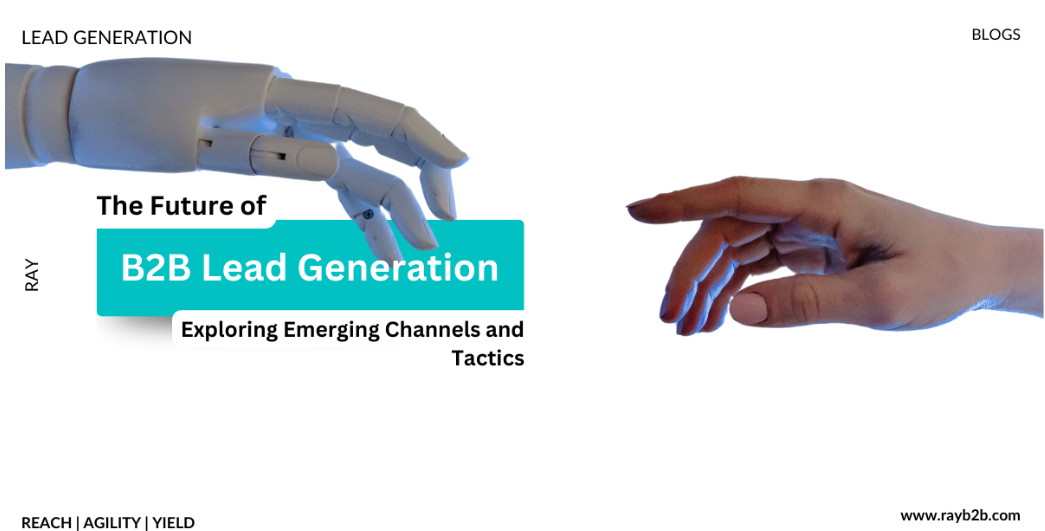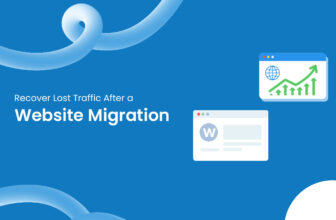
In the rapidly evolving landscape of B2B marketing, businesses must stay ahead by leveraging emerging channels and innovative tactics for lead generation. The future of B2B lead generation lies in the adoption of advanced technologies, personalized marketing strategies, and data-driven decision-making. This comprehensive guide delves into the most promising trends and strategies poised to shape the future of B2B lead generation.
The Rise of AI and Machine Learning in Lead Generation
Artificial Intelligence (AI) and Machine Learning (ML) are revolutionizing B2B lead generation by enabling businesses to analyze vast amounts of data and identify potential leads with unprecedented accuracy. These technologies help in automating lead scoring, personalizing outreach, and optimizing marketing campaigns.
AI-Powered Lead Scoring
AI algorithms analyze historical data and predict which leads are most likely to convert. This automated lead scoring process prioritizes high-quality leads, allowing sales teams to focus their efforts where they are most needed.
Personalized Outreach Through Machine Learning
ML models can segment audiences based on behavior, preferences, and past interactions. This segmentation enables highly personalized marketing messages that resonate with individual leads, increasing engagement and conversion rates.
Account-Based Marketing (ABM): A Targeted Approach
Account-Based Marketing (ABM) focuses on identifying and targeting high-value accounts with personalized marketing efforts. This strategy aligns sales and marketing teams to deliver a cohesive and targeted approach, resulting in higher ROI and more meaningful customer relationships.
Precision Targeting
ABM uses data and insights to identify key accounts that are most likely to benefit from a company’s products or services. This precision targeting ensures that marketing efforts are concentrated on prospects with the highest potential value.
Tailored Content and Experiences
By understanding the specific needs and pain points of each target account, businesses can create tailored content and personalized experiences. This approach builds stronger relationships and increases the likelihood of conversion.
Leveraging Social Media for B2B Lead Generation
Social media platforms are becoming increasingly important for B2B lead generation. LinkedIn, Twitter, and Facebook offer unique opportunities to engage with potential leads, share valuable content, and build brand authority.
LinkedIn for B2B Lead Generation
LinkedIn is the premier platform for B2B marketing. It allows businesses to connect with decision-makers, share industry insights, and participate in relevant discussions. LinkedIn’s advanced targeting options enable precise audience segmentation, making it an essential tool for B2B lead generation.
Social Listening and Engagement
Social listening involves monitoring social media channels for mentions of your brand, competitors, or industry keywords. This practice helps businesses understand market trends, gather competitive intelligence, and engage with potential leads in real-time.
The Impact of Content Marketing
Content marketing remains a cornerstone of B2B lead generation. High-quality, informative content attracts and engages potential leads, establishing a company as a thought leader and trusted resource.
Creating Valuable Content
Creating content that addresses the challenges and needs of your target audience is crucial. Whitepapers, eBooks, case studies, and blog posts that provide actionable insights can attract and nurture leads through the buying journey.
SEO and Content Distribution
Optimizing content for search engines ensures that it reaches a broader audience. Additionally, distributing content through various channels, including social media, email marketing, and industry forums, amplifies its reach and effectiveness.
The Role of Data and Analytics
Data and analytics are fundamental to modern B2B lead generation. By leveraging data, businesses can make informed decisions, optimize marketing strategies, and measure the effectiveness of their campaigns.
Data-Driven Decision Making
Collecting and analyzing data from various sources provides insights into customer behavior, preferences, and buying patterns. These insights enable businesses to refine their lead generation strategies and improve targeting accuracy.
Performance Measurement
Using key performance indicators (KPIs) and metrics, businesses can track the success of their lead generation efforts. Regular analysis of these metrics helps in identifying areas for improvement and ensuring that marketing objectives are met.
Embracing Automation and CRM Systems
Automation and Customer Relationship Management (CRM) systems streamline lead generation processes, enhancing efficiency and effectiveness. These tools help manage leads, track interactions, and automate repetitive tasks.
Marketing Automation
Marketing automation platforms enable businesses to nurture leads through automated email campaigns, social media posts, and other marketing activities. This consistent engagement helps in maintaining top-of-mind awareness and moving leads through the sales funnel.
CRM Integration
Integrating CRM systems with marketing automation platforms ensures that all lead information is centralized and accessible. This integration facilitates seamless communication between sales and marketing teams, improving lead management and conversion rates.
Conclusion
The future of B2B lead generation is characterized by the integration of advanced technologies, personalized marketing strategies, and data-driven approaches. By embracing AI, ABM, social media, content marketing, data analytics, and automation, businesses can effectively generate high-quality leads and drive sustained growth. Adopting these emerging channels and tactics will ensure that companies remain competitive and successful in the dynamic B2B landscape.







